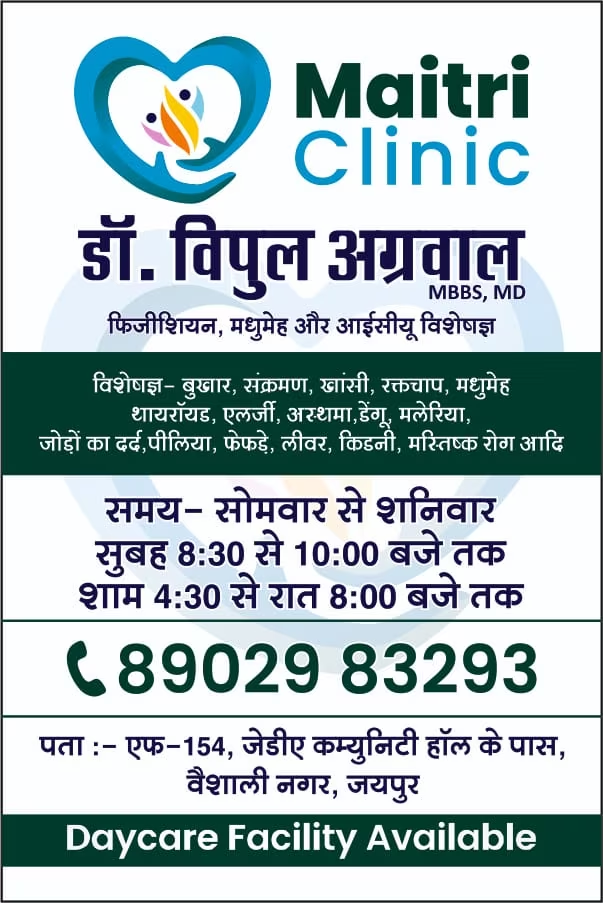How to diagnose allergies?
Diagnosing allergies typically involves a combination of medical history evaluation, physical examination, and specific tests. Here’s how allergies are diagnosed by Physician in Vaishali Nagar Jaipur:
Medical history: The doctor will ask about your symptoms, their duration, and any possible triggers or patterns of occurrence. A detailed medical history helps identify potential allergens and narrow down the list of suspected allergens.
Physical examination: A physical examination may reveal signs of allergic reactions such as nasal congestion, swollen eyes, or skin rashes. The doctor will also assess overall health to rule out other possible causes of symptoms.
Allergy testing: There are several types of allergy tests available:
- Skin prick test: A small amount of allergen is applied to the skin, usually on the forearm or back, and the skin is pricked to allow the allergen to enter. If you’re allergic to the substance, you’ll develop a reaction at the site within 15-20 minutes.
- Blood test: A blood sample is taken and analyzed for specific antibodies produced by the immune system in response to allergens. This test, known as a radioallergosorbent test (RAST) or allergen-specific IgE test, can identify allergen sensitivities.
- Patch test: Used to diagnose contact dermatitis, this test involves applying small amounts of potential allergens to patches placed on the skin for a couple of days to see if a reaction occurs.
- Elimination diet: If food allergies are suspected, the doctor may recommend eliminating certain foods from your diet and gradually reintroducing them to identify triggers.
Challenge tests: In some cases, especially if other tests are inconclusive, your doctor may perform challenge tests where you’re exposed to suspected allergens in a controlled environment under medical supervision to observe allergic reactions.









